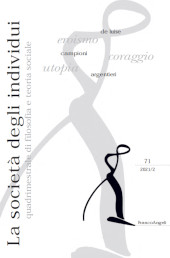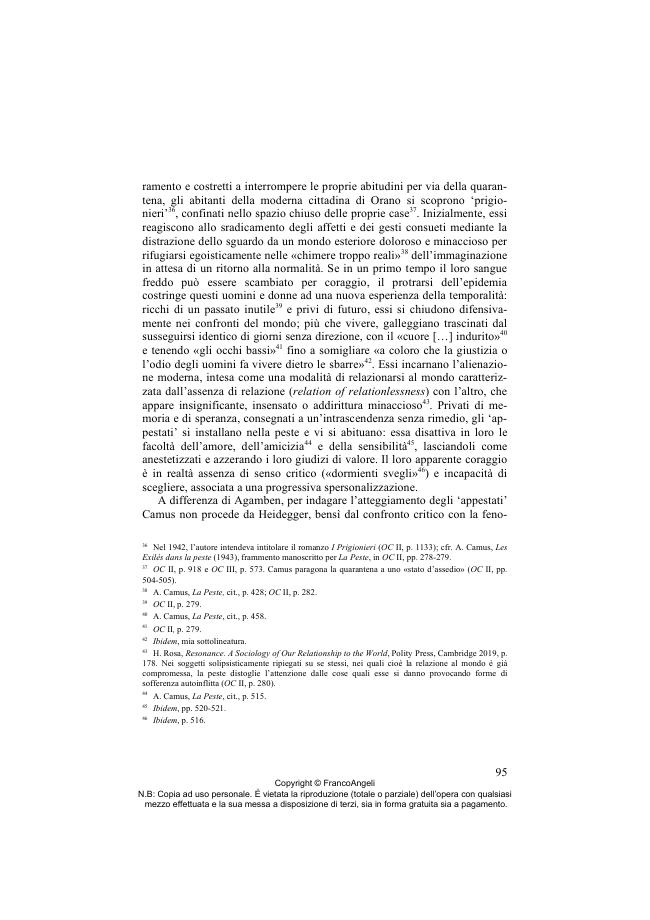Resistere alla peste : per una fenomenologia del coraggio come passione politica
89-100 p.
In recent philosophicalpolitical analysis on the SarsCoV2 pandemic, the plague denotes the political paradigm of the state of exception, in which fear combined with the nihilistic reduction of life to the sheer biological dimension neutralizes the capacity for rebellion against sovereign power. The essay takes into account Albert Camus's writings and, in particular, the homonymous novel, The Plague, as providing a crucial source for exploring the human capacity for resistance through a phenomenological investigation into the various forms or 'types' of courage. Conceived with Arendt as a 'political passion', in Camus's work courage denotes a rigorous exercise of 'practical' reason rooted in an attitude ('feeling') of opennesstotheworld ('love'), that is capable of constituting spaces of public freedom beyond the contemporary immunopolitical paradigm built on the hobbesian imperative of conservatio vitae. [Publisher's text].
Is part of
Società degli individui : 71, 2, 2021-
Articles from the same issue (available individually)
-
Information
ISSN: 1972-5752
KEYWORDS
- Phenomenology, immunopolitics, fear, resistance, resonance, courage



